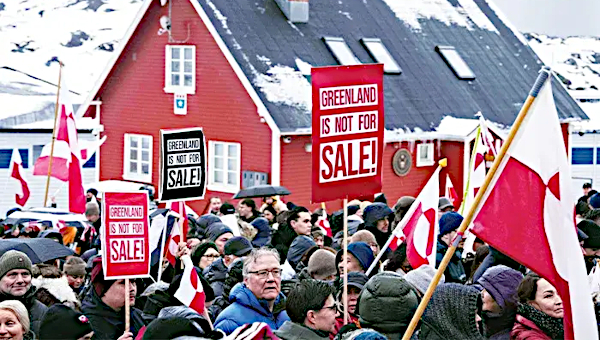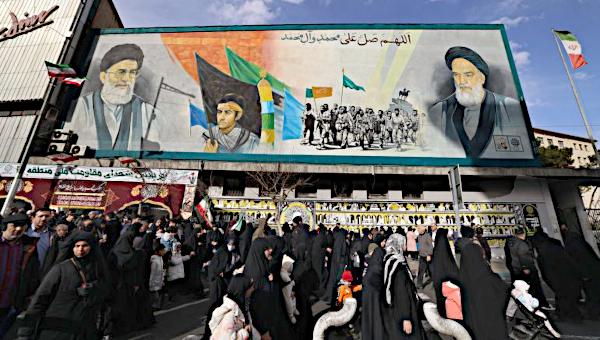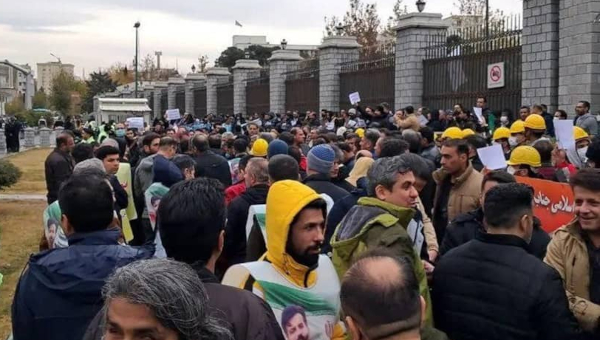Huge Stakes Behind War in Caucasus
“Georgia is a sovereign nation and its territorial integrity should be respected.” Had George Bush said what he said about Georgia from Beijing about Serbia as well, this is how he would have approached the so-called independence of Kosovo. The truth, of course, is far from this. The U.S. was the first country to recognise the new ‘state’ when Kosovo seceded from Serbia last spring. Yet, Bush now has the audacity to talk about the territorial integrity of Georgia. The policies of imperialism will have pride of place in the annals of hypocrisy.
The war over the issue of South Ossetia has three political dimensions. The first is an entirely local question. Certain peoples (in particular the Ossets and the Abhaz) that were part of Georgia under the Soviet Union have, since the dissolution of the latter, declared loud and clear that they do not wish to live under Georgian rule any longer. Georgia, in contrast, wants to keep these peoples forcibly tied to its domination. Thus the rights of these peoples to self-determination are violated by Georgia.
Saakashvili’s bluff
Secondly, Georgian president Mikhail Saakashvili is a fiery partisan of U.S. imperialism and covets NATO membership for Georgia. Only several months ago, under Russian pressure, most EU members of NATO had rejected the American proposal regarding NATO membership for Georgia and Ukraine. By attacking Tshkinvali, the capital of South Ossetia, a de facto independent territory since the 1992 ceasefire between Georgian and Osset armies, Saakashvili seems to have attempted to provoke Russia into a confrontation and thus force the hand of the NATO alliance into acting more rapidly. Russia has seen this bluff. But the West, despite some harsh words by the U.S. administration, has simply not followed suit. Saakashvili is a political adventurer who has not refrained from risking to throw the region, indeed the whole world, into the vortex of all out war just to have his country join the imperialist alliance. The Georgian people should get rid of this blood-thirsty politician for its own interests.
Saakashvili, the darling of the West, has also made Georgia into a Ghurka of U.S. imperialism. Today, after the withdrawal of troops by some countries, Georgia is the third country in Iraq, after the U.S. and the UK, in terms of troops on the ground. A country with a population of less than 5 million, a country whose people are suffering from unemployment and poverty maintains two thousand troops in Iraq! It is not imminent defeat at Russian hands that should shame the Georgian people, but the fact that the country has acted as the hitman of U.S. imperialism in Iraq.
U.S. Plans for the Caucasus and Central Asia
The third and most important question behind the present war is the long-standing U.S. policy that aims to encircle and isolate Russia. Even in the 1990s, when the U.S. was supposedly on good terms with the Yeltsin administration and Strobe Talbott’s friendship policy was running high, the U.S. strove to encircle Russia through a web of alliances in what is known as Russia’s ‘near abroad’. The establishment of the Partnership for Peace alliance – the waiting room for NATO – and the subsequent expansion of NATO to former Soviet republics and Eastern Eurpoean countries were only the most salient dimension. GUUAM was the name given to the loose web of alliances that the U.S. entertained with Russia’s southern and eastern neighbours, Georgia, the Ukraine, Uzbekistan (no longer part of the web), Azerbaijan and Moldova. The Afghanistan war, notwithstanding the rhetoric of the ‘war on terror’, was devised to penetrate former Soviet Central Asia, where thanks to the war the U.S. established, for the first time in modern history for a Western power, military bases. Putin’s acquiescence to Bush’s post-9/11 policies with the aim of covering up his own dirty war in Chechnya was as stupid as Stalin’s reliance on the Molotov-Ribbentrop pact in order to protect the Soviet Union from Nazi aggression.
This political conflict between the U.S. and Russia is thus the real stake of the war over miniscule South Ossetia. U.S. ambitions regarding the oil and natural gas of the Caucasus and Central Asia in addition to that of the Middle East is the economic basis of this tug-of-war between the U.S. and Russia. The U.S. desires to deprive Russia of the benefits of these regional riches, a policy symbolised by the Baku-Tblissi-Ceyhan (BTC) pipeline. Behind this is the U.S. strategic aim of keeping Russia and China down as contending superpowers in the 21st century. This self-serving policy of U.S. imperialism has borne its first product, leading to a situation where a tiny conflict has led to a conflagration that threatens the region and the world.
Socialists around the world should condemn the adventurist policy of Saakashvili and demand the immediate withdrawal of Georgian troops from South Ossetia. Bush’s argument regarding the “territorial integrity of the sovereign nation of Georgia” is not valid even from a legalistic point of view, since the 1992 ceasefire established de facto autonomy for South Ossetia, sanctioned internationally through the appointment of a peace mission headed by Russian troops. Much more important than any legal considerations are the facts of the right to self-determination of the Ossets and the Abhaz, the reactionary adventurism of Saakashvili, and the imperialist aims of the U.S. in the region. To see the Russian-Georgian war over South Ossetia as one between a historically dominant big nation (the Russians) and a historically oppressed small nation (Georgia) is to misconceive its real import. This is a proxy war, where the proxy (Saakashvili’s Georgia) has made a rash move without the consent of the real culprit, U.S. imperialism. Hence Georgia has engaged in an unjust war and should withdraw.
Turkey’s Complicity
Turkey, among the region’s medium-sized powers, has given extensive support to Georgia in recent years, providing aid to the level of U.S. $45 million, donating military material, weapons and ammunition, including missile ramps, warships, and early air warning systems, and trained Georgian officers to acclimatise them to NATO standards. This is part and parcel of Turkey’s overall orientation of aiding and abetting U.S. expansionism in the Balkans, the Middle East, the Caucasus and Central Asia. It is a policy that bears within it the seeds of catastrophic developments. Should Turkey, the southern neighbour of Georgia, find itself in a military standoff with the Russian Federation, the limited threat from the Russian-Georgian war would be magnified to a power that would threaten to throw the whole region into flames. The deceptive neutral stance the Turkish government has so far displayed vis-a-vis the ongoing war should not hide Turkey’s complicity in the adventurist policy of the Saakashvili government. Turkey should stop aiding Georgia militarily, should leave NATO and withdraw its troops from Bosnia, Kosovo, Afghanistan and Lebanon.
The Caucasus is a mosaic of peoples. Imperialism whips up old hostilities and Russia, the oppressor nation in the region for two centuries, manipulates or forces all small nationalities into submission. Given the interpenetration and geographic mixity of the various peoples of the Caucasus, the quest for entirely independent national states would lead to ethnic cleansing and massacres that would dwarf the catastrophe that visited Yugoslavia. The only way forward is for the peoples of the Caucasus to move away from narrow nationalism and unite in a polyphony of cultures. The only way forward in the longer term is a Federation of Caucasian Peoples. •





